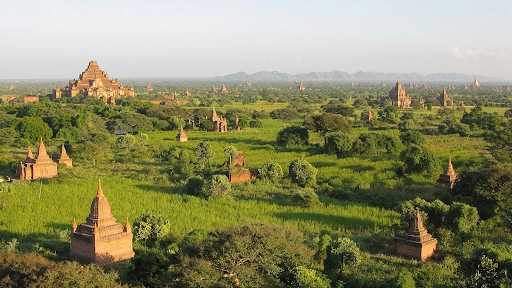Hong Kong-born U.S. Foreign Service Officer Edward Loo migrated to the United States as an infant, and went on to…
Cold War Cover Stories: The U-2 Incident
On May 1, 1960, at the height of the Cold War, the Soviet Union brought down an American U-2 spy…
John D. Negroponte: A Diplomatic Life of Controversy and Consequence
John D. Negroponte joined the Foreign Service in 1960 and went on to serve as ambassador to Honduras, Mexico, the Philippines…

The Diplomacy of Tragedy: Burmese Airways Crash Kills 14 Americans in 1987
In the early morning hours of October 11, 1987, a Burmese turboprop plane transporting 49 passengers, including 36 foreign nationals…
Education
Welcome! Explore our rich collection of primary sources by America’s diplomats that can inspire and support a variety of projects.…
The collapse of Zaire at the end of the First Congo War 1997
In the aftermath of the 1994 Rwandan genocide, ethnic Hutu refugees — including génocidaires — who had crossed into East Zaire to escape persecution from the new Tutsi government carried out attacks against ethnic Tutsis from both Zaire (now the Democratic Republic of the Congo) and Rwandan refugees. The Zairian government was unable to control the ethnic Hutu marauders, and indeed lent them some support as allies against the new, Tutsi-led Rwandan government. In response, the Tutsis in Zaire joined a revolutionary coalition headed by Laurent-Désiré Kabila. Kabila’s aim was to overthrow Zaire’s one-party authoritarian government run by Mobutu Sese Seko since 1965. With Kabila’s forces on the march, Zaire was soon engulfed in conflict. These hostilities, which took place from 1996-1997, are known as the “First Congo War” and lead to the creation of Zaire’s successor state The Democratic Republic of Congo. The United States, who had supported Mobutu until the end of the Cold War, recognized how potentially dangerous the situation was as Kabila gained control of most of the country and advanced rapidly towards the capital city of Kinshasa. In 1997, the United States sent a small group of diplomats to broker negotiations and attempt to come to a peaceful agreement between Mobutu and Kabila.
Harriet Elam-Thomas: A Career Well Served
Harriet Elam-Thomas grew up in Boston, the youngest of five children. She graduated from Simmons College and later earned a…
Protecting Greenland: The American Consulate at Godthab, 1940-42
During World War II, Nazi Germany invaded and occupied continental Denmark, leaving the Kingdom’s other two territories, the Faroe Islands…
You Know a Coup is Coming but No One will Listen: Sudan 1964
Sudan’s long history has been riddled with internal conflict. The United Kingdom and Egypt controlled Sudan for the first half…
Guns, Oil and Education: Qatar’s Evolving Relationship with the U.S.
The State of Qatar declared independence from Great Britain on September 3, 1971 and the U.S. recognized it two days…
